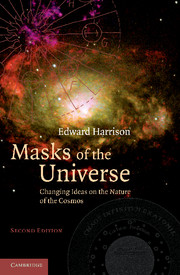18 - The Cloud of Unknowing
Published online by Cambridge University Press: 27 October 2009
Summary
An unidentified English author of the fourteenth century, who was probably a priest, wrote
But now thou askest me and sayest: “How shall I think … and what is he?” Unto this I cannot answer thee, except to say: “I know not.” For thou hast brought me with thy question into that same darkness, and into that same Cloud of Unknowing. … For of all other creatures and their works – yea, and of the works of God himself – may a man through grace have fullness of knowing, and well can he think of them; but of God himself can no man think. And therefore I would leave all that thing that I can think, and choose to my love that thing that I cannot think.
Like other contemplative mystics of the Middle Ages the author discovered that thought could not unveil the face of God: “By love may he be gotten and holden; but by thought neither.” God, the Cloud of Unknowing, was beyond articulation, and the source of all articulations.
Contemplative mystics in the Middle Ages – Christian, Jewish, and Muslim – ranked among the most advanced thinkers of their time. Thus, Nicholas of Cusa, prince and statesman of the Roman Church, sagely recorded that “scientific superstition” is the expectation that science answers our every question.
In the West, and wherever else the modern physical universe now holds sway, sections of the public have caught up with the agnostic intellectuals of the nineteenth century.
- Type
- Chapter
- Information
- Masks of the UniverseChanging Ideas on the Nature of the Cosmos, pp. 289 - 304Publisher: Cambridge University PressPrint publication year: 2003

